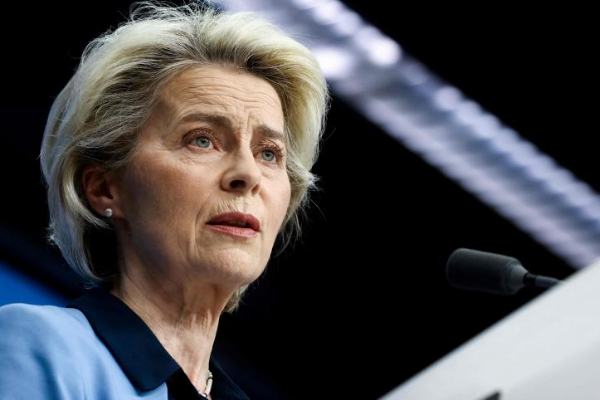European Commission President Ursula von der Leyen and EU Foreign Affairs chief Josep Borrell will travel to Kyiv later this week to meet Ukrainian President Volodymyr Zelenskyy, the EU’s chief spokesperson announced on Tuesday.
The trip follows Roberta Metsola’s visit to Kyiv, where the Maltese President of the European Parliament met Zelenskyy, Prime Minister Denys Shmyhal, and the Ukrainian parliament - the Verkhovna Rada.
President @vonderleyen and HRVP @JosepBorrellF will travel this week to Kyiv to meet President @ZelenskyyUa prior to the pledging event #StandUpForUkraine on Saturday in Warsaw.
— Eric Mamer (@MamerEric) April 5, 2022
The planned trip precedes a donors’ conference for Ukraine in Poland on Saturday, where the 27 member states will discuss the fifth set of sanctions against Moscow, following the images of massacred civilians in Bucha.
In a statement on Tuesday afternoon, the Commission President referred to “the gruesome pictures from Bucha and other areas from which Russian troops have recently left” and outlined the fifth round of sanctions.
The package has six pillars and will among others include an import ban on coal from Russia, worth €4 billion per year, and a full transaction ban on four key Russian banks, among them VTB, the second largest Russian bank.
Von der Leyen said that the EU has already decided to set up a “joint investigation team with Ukraine to collect evidence and investigate war crimes and crimes against humanity," Belga News Agency reported.
Related News
- Butchers of Bucha: World reacts with horror to Russian atrocities
- European Parliament President visits Kyiv on Friday
- Ukraine: European Parliament makes Brussels building available for anti-war efforts
It is Von der Leyen and Borrell's first visit to Kyiv since Russia invaded the country on 24 February, while the Prime Ministers of Poland, Slovenia and the Czech Republic have also travelled to the capital to show their support for Ukraine's resistance against the Russian invasion.
The various visits to Kyiv come as part of the EU's promise to show "unequivocal support of the entire European Union for the sovereignty and independence of Ukraine”.

